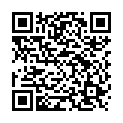|
|
|
| Module code: PRI-CAXP |
|
|
3V+3PA (6 hours per week) |
|
8 |
| Semester: 5 |
| Mandatory course: yes |
Language of instruction:
German |
Assessment:
[updated 15.04.2024]
|
PRI-CAXP (P223-0004) Production Informatics, Bachelor, SO 01.10.2023
, semester 5, mandatory course
|
90 class hours (= 67.5 clock hours) over a 15-week period.
The total student study time is 240 hours (equivalent to 8 ECTS credits).
There are therefore 172.5 hours available for class preparation and follow-up work and exam preparation.
|
Recommended prerequisites (modules):
PRI-CAX CAX Basics and Applications
PRI-TFL Manufacturing Process Technology (with Lab Course)
[updated 09.12.2022]
|
Recommended as prerequisite for:
|
Module coordinator:
Prof. Dr. Jürgen Griebsch |
Lecturer: Prof. Dr. Jürgen Griebsch
[updated 18.07.2022]
|
Learning outcomes:
After successfully completing this course, students will be familiar with the structure and elements of machine tools.
They will be able to assess the importance of the individual elements for manufacturing accuracy and select suitable machine tools for a given manufacturing task.
After successfully completing this part of the module, students will be familiar with additive manufacturing technologies and be able to apply their knowledge about it.
They will be familiar with the typical fields of application for different procedures and also their limits. Students will be proficient in the production-ready design (CAD; bionic principles) of components manufactured using an additive process. They will be able to evaluate the feasibility of existing designs or drawings and to recognize cost drivers of generative manufacturing processes and thus, to name the most economically reasonable production method for components.
[updated 15.04.2024]
|
Module content:
CAD:
- Systemic design on the basis of a design project, in which the students are expected to assemble machine elements and individual parts and design a holistic product from the point of view of technological feasibility, safe function, economical production and follow-up costs, sufficient durability as well as energy and resource efficiency.
- Considering stress types, load flow determination, notch effect, material selection
- Dimensioning machine elements
- Getting to know and using tools for methodical product development (e.g. requirements list, creativity techniques, evaluation methods, principle solutions, methodical product development process)
CAX (e.g. 3D printing/additive manufacturing, machine tools, joining/laser technology)
CAD-CAM coupling
- Machine tool requirements and definition
- Frames: geometries and materials
- Guides
- Drives
- Machine tool design
Introduction to additive manufacturing
- Technologies and areas of application,
- Laser-sintering technology and introduction to RP software,
- Production-oriented design for additive manufacturing processes (feasibility study, profitability analysis, quality considerations)
Selection and delimitation of the various procedures / advantages & disadvantages
- Material testing including strength analyses
- Group work and laboratory exercises with a test series and a comparison of joining technologies
[updated 15.04.2024]
|
Teaching methods/Media:
- Lecture using multimedia-supported training courses and integrated exercises.
- Laboratory sessions for the prototypical implementation of designs and product developments (including machining processes, 3D printing)
[updated 15.04.2024]
|
Recommended or required reading:
- HIRSCH, Andreas: Werkzeugmaschinen Grundlagen, Auslegung, Ausführungsbeispiele. Wiesbaden, Vieweg+Teubner Verlag, 2012
- BAHMANN, Prof. Dr.-Ing. Werner: Werkzeugmaschinen kompakt Baugruppen, Einsatz und Trends, Wiesbaden, Springer Vieweg, 2013
- BRECHER, Christian; Weck Manfred: Werkzeugmaschinen Fertigungssysteme Konstruktion, Berechnung und messtechnische Beurteilung Band 2, Berlin Heidelberg, Springer Vieweg, 2017
- KLEIN, Bernd: FEM - Grundlagen und Anwendungen der Finite-Element-Methode im Maschinen- und Fahrzeugbau; Wiesbaden, Springer Vieweg, 2012
- NEUGEBAUER, Prof. Reimund: Werkzeugmaschinen Aufbau, Funktion und Anwendung von Spanenden und abtragenden Werkzeugmaschinen, Berlin Heidelberg, Springer Vieweg, 2012
- Hoenow, G.; Meißner. T.: Entwerfen und Gestalten im Maschinenbau. Fachbuchverlag Leipzig. - Hoenow, G.; Meißner. T.: Konstruktionspraxis im Maschinenbau. Hanser-Verlag.
- Hintzen, Laufenberg, Kurz: Konstruieren, Gestalten, Entwerfen. Vieweg-Verlag.
- Inventor 2020 Grundlagen, Herdt Verlag, ISBN: 978-3-86249-856-7
- Basiskurs für Autodesk Inventor 2020; Armin Gräf Verlag, www.armin-graef.de/shop
- Grundlagenkurs Inventor 2019, Carl Hanser Verlag GmbH & Co. KG zum Download aus der HTW Bücherei!
- Grundlagenkurs Inventor 2019, Carl Hanser Verlag GmbH & Co. KG zum Download aus der HTW Bücherei!
- Gebhardt A.; Additive Fertigungsverfahren Additive Manufacturing und 3D-Drucken für Prototyping Tooling Produktion; Hanser Verlag; 2016
- Breuninger J., Becker R., Wolf A., Rommel S.; Generative Fertigung mit Kunststoffen, Springer Verlag; 2013
- Gibson I., Rosen D., Stucker B.; Additive Manufacturing Technologies 3D-Printing, Rapid Prototyping, and Direct Digital Manufacturing
- Niemann, G.: Maschinenelemente - Band 1. 5. Auflage, Berlin Heidelberg: Springer Vieweg Verlag, 2019.
- Rolof, H.: Maschinenelemente. 24. Aufage, Wiesbaden: Springer Vieweg Verlag, 2019.
- Perovic, B.: Vorrichtungen im Werkzeugmaschinenbau. Berlin Heidelberg: Springer Vieweg Verlag, 2013.
- Conrad, K.: Grundlagen der Konstruktionslehre. München: Hanser Verlag, 2019.
- Feldhusen, J.; Grote, K.-H.: Pahl/Beitz Konstruktionslehre. 8. Aufage, Berlin Heidelberg: Springer Vieweg Verlag, 2013
- Gebhardt A.; Additive Fertigungsverfahren Additive Manufacturing und 3D-Drucken für Prototyping Tooling Produktion; Hanser Verlag; 2016
- Breuninger J., Becker R., Wolf A., Rommel S.; Generative Fertigung mit Kunststoffen; Springer Verlag; 2013
[updated 15.04.2024]
|
Module offered in:
WS 2024/25
|

